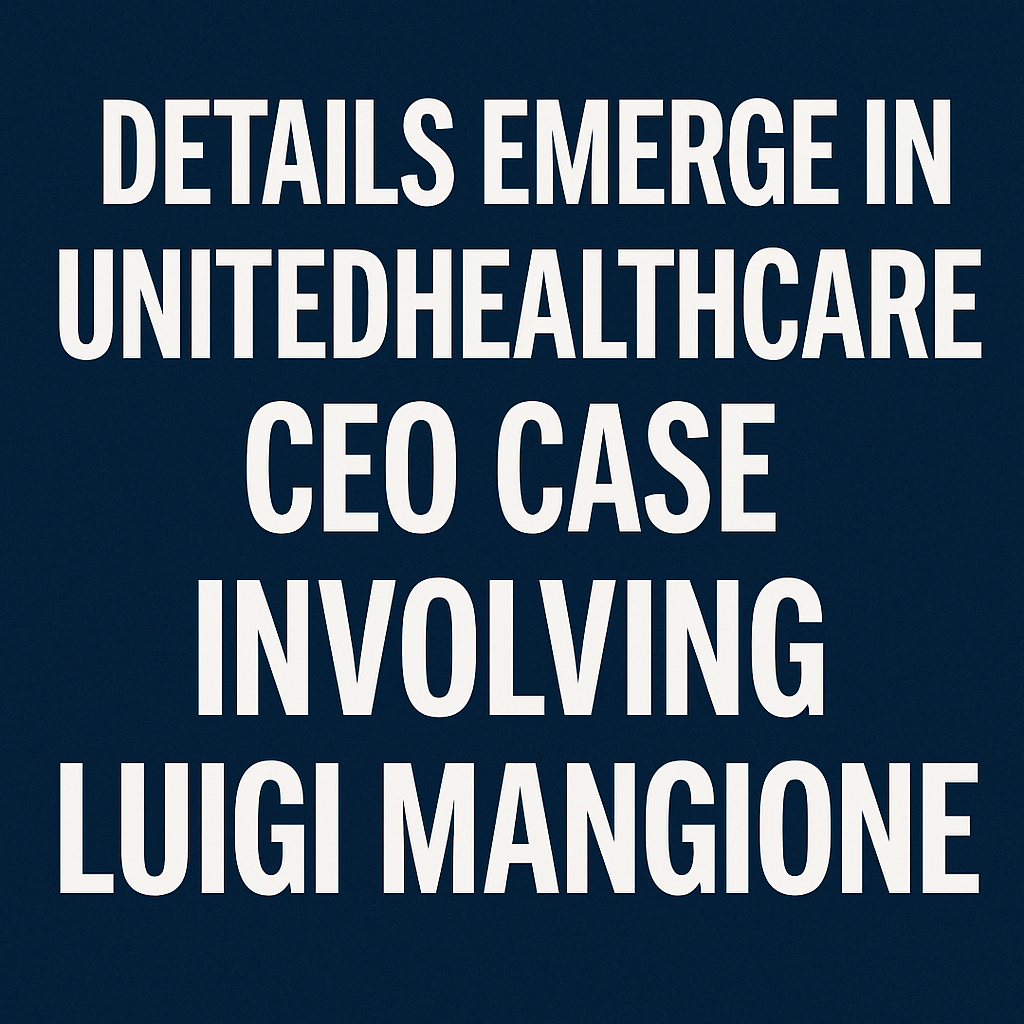Details Emerge in UnitedHealthcare CEO Case Involving Luigi Mangione

In a shocking case that has captivated public attention, suspect Luigi Mangione is facing charges related to the murder of UnitedHealthcare CEO Brian Thompson, who was gunned down outside a Manhattan hotel in December. Prosecutors have unveiled details from Mangione’s handwritten diary which sybolizes extreme discontent towards the health insurance industry. The diary reflects his belief that the killing of the executive was a justified act against what he described as a “greedy health insurance cartel.” These revelations emerged from a recent court filing by the Manhattan district attorney’s office.
Key Revelations from Mangione’s Diary
“It had to be done.”
The district attorney’s office quoted extensively from Mangione’s diary, where he expressed desires to rebel against health insurance entities, specifically mentioning the notion of bringing down executives within the healthcare sector. Prosecutors emphasized that Mangione’s writings serve as a manifesto, in which he articulated his intentions regarding the murder.
- Expression of Intent: The writings in the diary referenced various methods to execute his plans, including a potential bombing of UnitedHealthcare’s headquarters. Ultimately, he resolved on targeting Thompson during a company investor conference in Manhattan, citing it as a “targeted, precise” action.
- Manifesto Tone: Prosecutors argue that Mangione viewed his act of violence as a call to revolutionary change within the healthcare industry, envisioning headlines which reflected his anticipated narrative.
Legal Proceedings and Challenges
As the case progresses, Mangione’s defense team is seeking the dismissal of state charges, arguing they amount to double jeopardy when considered alongside a parallel federal case. His attorneys contend that the combination of charges has created a “legal quagmire”, complicating his defense strategy.
- Double Jeopardy Argument: Prosecutors counter that the two cases revolve around different legal theories and therefore do not constitute double jeopardy since neither case has gone to trial yet.
- State vs. Federal Charges: The state charges focus on allegations of intimidation which could impact civilian populations, notably insurance employees and investors, and carry a maximum penalty of life in prison. In contrast, federal charges focus specifically on the stalking element concerning Thompson.
Public and Industry Reactions
The implications of this case are being closely followed by both healthcare advocates and industry stakeholders. Reactions to the murder have extended beyond the courtroom, with many viewing Mangione as a symbol of the frustrations experienced by individuals in navigating complex health insurance systems.
- Supporter Dynamics: A segment of the public has rallied around Mangione, interpreting his actions as an expression of deep-seated dissatisfaction with insurance companies known for coverage denials and exorbitant medical bills. This has raised ethical questions concerning the boundaries of advocacy in addressing systemic issues within healthcare.
- Response from UnitedHealthcare: UnitedHealthcare stated that Mangione was never a client, distancing themselves from his radical actions while emphasizing their commitment to providing quality health care.
Next Steps in the Legal Process
As the case unfolds, Mangione is scheduled for a return to state court on June 26, where Judge Gregory Carro is expected to deliberate on his defense’s requests regarding evidence dismissal and the determination of trial dates in both state and federal courts.
In addition, prosecutors are requesting the federal death penalty, a move which U.S. Attorney General Pam Bondi described as necessary for addressing a premeditated murder reflecting political violence within a corporate context.
All eyes will be on court proceedings as they may set a precedent for how violent acts motivated by political and social grievances within the healthcare industry are prosecuted in America.
Conclusion
The ongoing case against Luigi Mangione underscores the broader discourse surrounding the American healthcare system and the frustrations it engenders. Legal experts will be monitoring the outcomes closely, as the ramifications of these proceedings could extend far beyond the courtroom, reflecting wider societal issues.